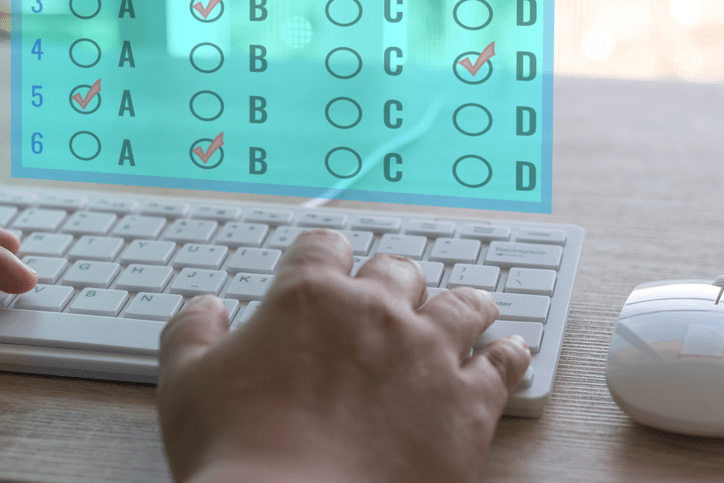The Certified Management Accountant (CMA) designation is one of the most prestigious certifications in the fields of management accounting and financial management. Earning the CMA certification involves passing a rigorous two-part CMA exam, which not only tests your knowledge but also proves your proficiency in key areas such as financial planning, analysis, performance, and decision-making. However, the path to obtaining your CMA certification also comes with several fees, and understanding these costs is essential for planning your journey to certification.
In this comprehensive guide, we’ll break down the CMA exam fees 2025, including CMA exam registration, exam fee, support packages, additional expenses, and even available scholarships and financial assistance programs. Let’s dive into the details to ensure you are fully prepared.

Table of Contents
CMA Certification Overview
The CMA certification is a globally recognized credential that demonstrates expertise in management accounting and financial management. This credential is highly valued by employers, as it showcases a candidate’s ability to manage financial processes, analyze data, and make informed decisions for the long-term success of an organization.
To earn the CMA, candidates must successfully complete both parts of the CMA exam:
- Part 1: Financial Planning, Performance, and Analytics
- Part 2: Strategic Financial Management
Passing these two parts indicates proficiency in management accounting and financial management, and the credential is widely respected across the business world.
CMA Exam Registration and Fees
Before you can take the exam, you’ll need to go through the CMA exam registration process. This involves the following steps:
- Become a member of IMA (Institute of Management Accountants) – All candidates must join the IMA to be eligible for the CMA exam.
- Enroll in the CMA Program – After joining the IMA, you must enroll in the CMA program to begin your exam journey.
- Register for the Exam – After enrolling in the program, you can then register for the CMA exam.
CMA Exam Fee Breakdown
The fees for the CMA exam vary depending on your IMA membership type:
- Professional Members: Around $1,600 (includes CMA exam registration and a one-time processing fee).
- Students and Academic Members: Receive discounted rates, typically paying around $1,000 to $1,200.
Additional Fees:
- One-Time Processing Fee: $15 (This fee is included in the CMA exam registration cost).
Note: If you’re a student member or academic member, you’ll enjoy a significant discount on the regular exam fee. This makes the certification more affordable for those just beginning their careers.
CMA Exam Support Package
The CMA Exam Support Package is a comprehensive resource bundle designed to help candidates successfully prepare for the CMA exam. This package includes several tools and resources tailored to ensure candidates have everything they need to succeed:
- Exam Review Materials: A range of resources including textbooks, practice questions, and sample exams to familiarize candidates with the exam format and content. These materials are crafted to help candidates strengthen their knowledge in critical areas like financial planning, performance, and decision-making.
- Online Study Resources: Interactive tools such as video tutorials, quizzes, and full-length practice exams. These resources are available on-demand, allowing candidates to study at their own pace and revisit challenging topics as needed.
- Personalized Certificate: Upon passing the exam, candidates receive a certificate that validates their accomplishment and can be displayed as a testament to their hard work and dedication.
The CMA Exam Support Package is automatically included in the exam registration fee, making it a convenient and valuable resource for candidates embarking on their CMA journey.
How to Acquire Financial Support for the CMA Exam Support Package
For candidates concerned about the cost of the CMA certification, financial support is available through various programs and initiatives:
- CMA Scholarship Program: This program, offered by the Institute of Management Accountants (IMA), provides financial assistance to high-achieving students. It covers the CMA exam registration fee, CMA entrance fee, and access to exam review materials, significantly reducing the financial burden for eligible candidates.
- Employer Sponsorship: Many organizations recognize the value of the CMA designation and are willing to invest in their employees’ professional development. Candidates should inquire with their employer about potential sponsorship or reimbursement for exam fees and preparation resources.
- Educational Institution Partnerships: Some universities and colleges partner with the IMA to offer discounts on CMA fees or access to study materials for students pursuing the credential. Candidates can explore these options through their institution’s career or accounting department.
- Installment Plans: The IMA provides payment plan options for certain fees, allowing candidates to spread the cost of their CMA program enrollment and exam fees over several months.
- Grants and Financial Aid: In addition to the IMA’s programs, candidates can seek external grants or financial aid from professional organizations or government programs aimed at fostering career development in accounting and finance.
By leveraging these financial support options, candidates can access the CMA Exam Support Package and necessary preparation materials, ensuring a smoother path toward achieving their CMA certification.
Exam Preparation
Proper preparation is the key to passing the CMA exam. It’s crucial to dedicate time and effort to study the core topics tested in the CMA exam, which include areas such as:
- Financial Planning: Budgeting, forecasting, and financial modeling.
- Performance Management: Performance measurement, variance analysis, and cost management.
- Decision Analysis: Evaluating financial information for strategic decision-making.
Candidates can utilize a variety of preparation methods, including:
- Study Materials: CMA study materials, textbooks, and guides that cover all exam topics.
- Online Resources: Access to online study programs, video lectures, and practice tests.
- Review Courses: Intensive, structured review courses designed to reinforce key concepts.
Choosing the right mix of preparation resources is essential for mastering the material and achieving a passing score.
CMA Exam Costs and Expenses
Earning your CMA certification requires a financial investment, and understanding the breakdown of specific costs is crucial for proper planning. Below is a detailed look at the costs and expenses associated with the CMA exam.
1. CMA Exam Registration Fee
This is the primary expense for taking the CMA exam, and it varies depending on your membership type with the Institute of Management Accountants (IMA):
- Professional Members: Approximately $1,600.
- Student and Academic Members: Discounted rates range from $1,000 to $1,200, making it more affordable for those in academic programs.
- Non-Refundable Processing Fee: A one-time fee of $15 is included in the exam registration fee.
2. CMA Exam Entrance Fee
The CMA entrance fee is a separate cost required to enter the CMA program and gain eligibility to take the exam.
- Professional Members: Around $250.
- Students and Academic Members: Often waived or significantly reduced for scholarship recipients.
3. Exam Review Materials
Adequate preparation for the CMA exam requires high-quality study materials. The cost of these resources can vary:
- Basic Packages: $500 – Includes essential study materials like textbooks and practice questions.
- Comprehensive Packages: $1,000 or more, which may include live classes, video tutorials, and advanced practice tests.
4. Travel and Accommodation
For candidates who need to travel to a testing center for their exam appointment, additional expenses may arise:
- Transportation: Depending on the distance, travel costs can range from $50 to $300.
- Accommodation: If overnight stays are necessary, lodging expenses typically range from $150 to $200 per night.
- Meals and Incidentals: Budgeting an additional $50 to $100 per day for meals and other expenses is recommended.
5. IMA Membership Fee
All candidates must maintain active IMA membership throughout their CMA journey.
- Professional Members: Approximately $275 per year.
- Student Members: Discounted to around $39 per year.
6. Continuing Education Costs
Once certified, CMAs must complete 30 hours of continuing education annually to maintain their designation. While not part of the initial exam cost, candidates should account for these expenses in the long term.
Total Estimated Cost
Here’s a consolidated view of typical costs:
- CMA Exam Registration and Entrance Fees: $1,250 – $1,850.
- Exam Review Materials: $500 – $1,000.
- Travel and Accommodation: $200 – $500.
- IMA Membership Fees: $39 – $275 annually.
Grand Total: Candidates can expect to invest between $1,700 and $2,625 for the full CMA certification process, depending on membership status, travel needs, and study material choices.
By planning for these expenses and exploring financial support options such as scholarships or employer sponsorships, candidates can navigate the CMA exam costs effectively and focus on achieving certification success.
CMA Scholarship and Opportunity Programs
To make the CMA exam and the CMA certification more accessible, the Institute of Management Accountants (IMA) offers several financial support programs. These initiatives aim to reduce the financial burden on students, educators, and professionals, enabling more individuals to pursue their CMA journey.
1. CMA Scholarship Program
The CMA Scholarship Program is designed for high-achieving students who demonstrate academic excellence and are committed to pursuing a career in management accounting or financial management.
Key details about the program:
- Eligibility: Undergraduate and graduate students enrolled full-time at accredited institutions. Candidates are typically nominated by a faculty member or department head based on their academic performance and potential.
- What It Covers:
- The CMA exam registration fees for both parts of the exam.
- The CMA entrance fee, which grants access to the CMA program.
- Study resources, such as exam review materials, provided at no additional cost.
- How to Apply: Eligible students must be nominated by their academic institution. Once nominated, the IMA reviews the application and selects recipients based on merit.
This scholarship can save candidates up to $2,000, making it an exceptional opportunity for students to achieve the CMA designation without incurring significant costs.
2. CMA Opportunity Program
The CMA Opportunity Program supports faculty members and academic professionals, encouraging them to further their expertise in management accounting and to promote the CMA certification to their students.
Key details about the program:
- Eligibility: Faculty members teaching accounting, finance, or related fields at accredited institutions.
- What It Covers:
- Waives the CMA entrance fee and exam registration fees, allowing educators to participate in the CMA program at no cost.
- Access to exam review materials and other study tools.
- Objective: By certifying more faculty members, the program strengthens the emphasis on management accounting education and prepares educators to mentor future CMAs effectively.
Benefits of These Programs
Both the CMA Scholarship Program and the CMA Opportunity Program offer significant financial relief to eligible participants, covering key expenses like the exam fee, study resources, and program enrollment. These initiatives:
- Lower barriers to entry for students and educators who might otherwise face financial constraints.
- Foster greater adoption and promotion of the CMA certification within academic institutions.
- Enhance the career prospects of students and faculty by equipping them with a globally recognized credential in financial management and management accounting.
How to Take Advantage
- For Students: Contact your university’s accounting or finance department to express interest and discuss the nomination process.
- For Educators: Contact the IMA directly to learn about eligibility and application steps for the CMA Opportunity Program.
These programs reflect the IMA’s commitment to advancing the field of management accounting while making the CMA exam more attainable for aspiring professionals and educators.
Is the CMA Designation Worth It?
The CMA designation is undeniably worth the investment for professionals looking to advance in management accounting and financial management. Here’s why:
- Increased Earning Potential: CMAs often earn higher salaries compared to their non-certified peers.
- Career Advancement: The CMA designation opens doors to leadership positions in financial planning, strategy, and management.
- Global Recognition: As a globally recognized credential, the CMA certification enhances your professional standing and opportunities for international career growth.
Ultimately, the CMA certification represents a commitment to excellence in financial management and provides a competitive edge in today’s dynamic business environment.
Conclusion
The CMA exam fees 2025 involve various costs, from CMA exam registration fees to exam review materials and additional expenses like travel. However, the investment in your career is worth the value it brings. By understanding the fees, support options, and preparation requirements, you can take a strategic approach to earning your CMA certification.
With scholarships, exam support packages, and ample study materials, the path to CMA certification is within reach for dedicated professionals seeking to enhance their careers in management accounting and financial management.
Recommended Reading

An Overview Guide to the CMA Exam
|
CMAExam.com Team
Introduction The Certified Management Accountant (CMA) Exam is a globally recognized certification for finance and accounting professionals. Administered by the Institute of Management Accountants (IMA), the exam evaluates expertise in financial planning, analysis, control, decision support, and professional ethics. Whether you’re an aspiring accountant or a seasoned professional, the CMA credential can enhance your career by showcasing your proficiency and commitment to excellence. This guide provides everything you need to know about the CMA Exam—from requirements and costs to preparation tips and benefits. Becoming a CMA can significantly impact your career trajectory, providing you with the tools to make strategic decisions, improve organizational performance, and boost earning potential. This certification sets you apart as a financial leader capable of navigating complex challenges and driving success. IntroductionWhat is the CMA Exam?Part… Read More

CMA vs CPA, CFA, and EA: A Comprehensive Comparison for Accounting Professionals
|
CMAExam.com Team
Accounting is a dynamic and diverse field, offering various career paths with distinct specializations. For professionals looking to advance in their careers, obtaining a certification is often a critical step.… Read More

Is the CMA Exam Worth It? A Balanced Look at Its Value and Benefits
|
CMAExam.com Team
For accounting and finance professionals, deciding whether to pursue the Certified Management Accountant (CMA) certification can be a pivotal career decision. The CMA certification offers unique opportunities and benefits but… Read More

CMA Exam Questions: Your Complete Guide to Practice and Preparation
|
CMAExam.com Team
Introduction The CMA exam (Certified Management Accountant exam) is a globally recognized certification that assesses candidates on advanced financial management and strategic skills. At the heart of the exam are… Read More

CMA Exam Pass Rate and CMA Exam Scoring: Your Guide
|
CMAExam.com Team
The CMA exam pass rate and CMA exam scoring system are critical factors in preparing for the Certified Management Accountant (CMA) exam. Understanding the CMA exam structure, scoring process, and… Read More

Exploring CMA Career Opportunities: Pathways to Success and Growth
|
CMAExam.com Team
The Certified Management Accountant (CMA) designation opens a world of employment opportunities in accounting, finance, and management. Earning this credential requires dedication to training, planning, and passing the CMA exam,… Read More
Master the CMA Exam: Your Comprehensive Guide to Success
The CMA exam, or Certified Management Accountant exam, is a critical step for accounting and finance professionals aiming to advance their careers. This guide provides an in-depth understanding of the CMA program, exam requirements, and preparation strategies to help you achieve the coveted CMA certification. If you’re ready to become a Certified Management Accountant, let’s dive in!. Get the best course here.